We Communicate For Happy Children
 The First Regional Forum of the Arab Network: A Cornerstone in Early Childhood Development
The First Regional Forum of the Arab Network: A Cornerstone in Early Childhood Development 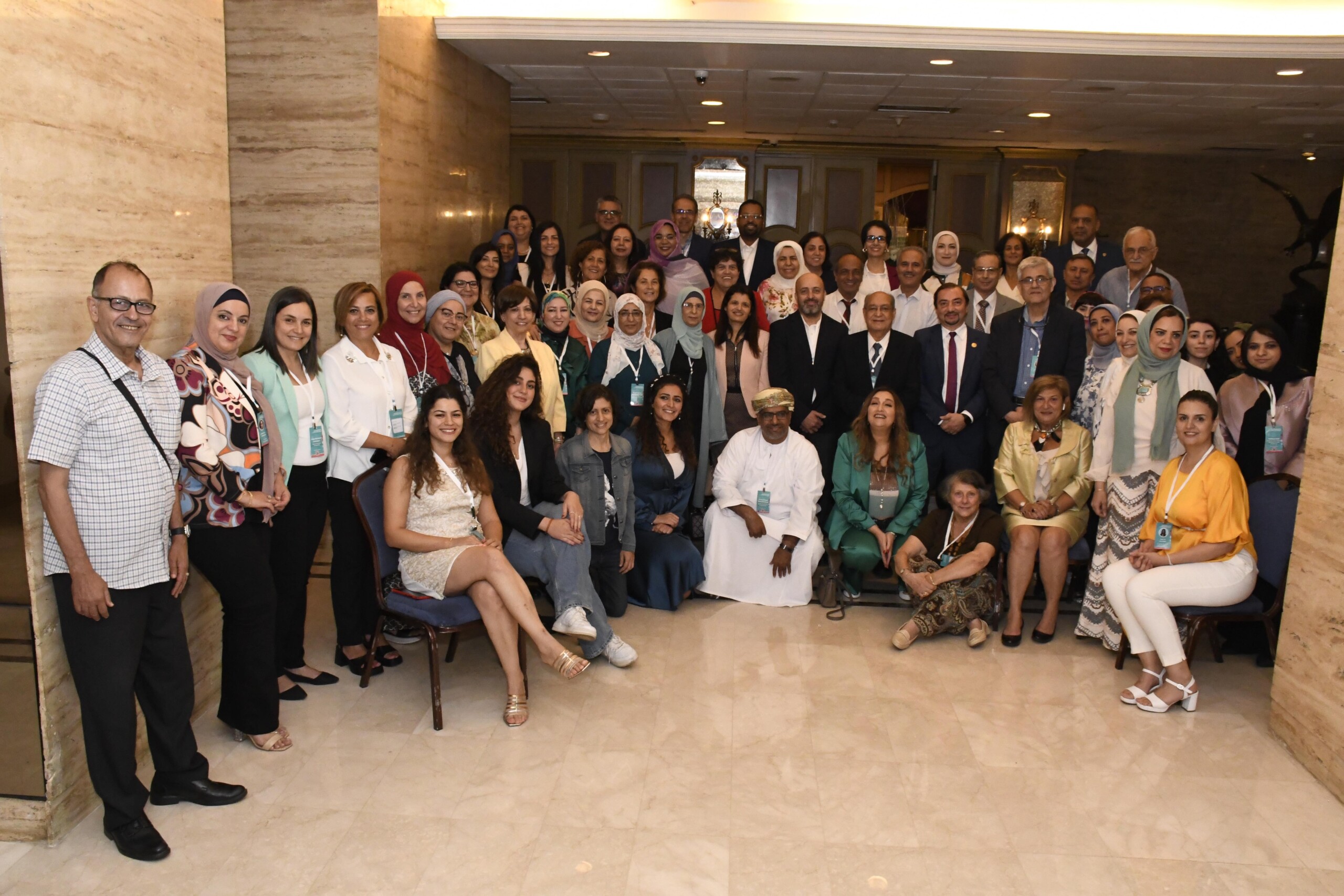
The Arab Network for Early Childhood (ANECD) held its first regional forum, titled “Caring for Young Children in a Turbulent World: Development Strategies in Arab Countries”, from September 8 to 10th in Cairo, Egypt. The forum was hosted by the Arab Council for Childhood and Development and attended by over 60 members and representatives from various sectors involved in Early Childhood Development from 13 Arab countries.
The regional forum organized by the ANECD aimed to identify strategic directions for Early Childhood Development in the face of multiple crises affecting Arab countries. It also laid the foundation for continued collaborative efforts to improve the well-being of young children in the Arab region. The forum highlighted policies with visions, cooperative initiatives, and research presentations, all emphasizing the importance of advocating for children’s rights. Additionally, it clarified the role of ANECD and its partners in supporting Early Childhood Development research and identifying leading programs in the Arab world.
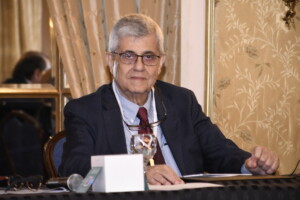
Dr. Ghassan Issa, General Coordinator of the Arab Network for Early Childhood (ANECD) gave the opening remarks of the forum and provided an overview of ANECD’s establishment in 2014 as an interactive networking platform evolving from the Arab Resource Collective which was founded in 1989 and held its first regional early childhood workshop in 1992. ANECD also hosted the “Arab Program for Early Childhood Development” in 2012 under the umbrella of the “Arab Program for Quality Improvement in Education” at the Arab League of Educational, Cultural, and Scientific Organisation (ALECSO). Dr. Issa explained that the goal of convening the first regional forum was to bring together stakeholders in Early Childhood issues to lay the foundation for more cohesive collaboration and strategic vision. The aim is to ensure that children in Arab countries are happy and enjoying their rights.
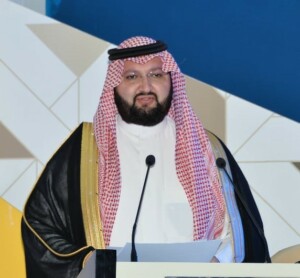
In a recorded speech, HRH Prince Abdulaziz bin Talal bin Abdulaziz Al Saud, President of the Arab Council for Childhood and Development, emphasized that this regional forum provides a valuable opportunity to define strategic directions and support Early Childhood Development. It opens channels of discussion on Early Childhood issues in the Arab World.
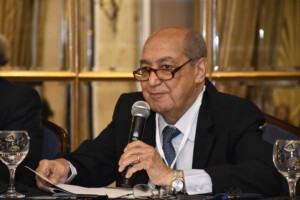
Dr. Hassan Al-Bilawi, the Secretary-General of the Arab Council for Childhood and Development, emphasized that the regional forum aims to renew the collective will to achieve the Sustainable Development Goals as well as the growth, well-being, and education of Arab children, along with the enforcement of their rights and the development of their knowledge, skills, and behaviors.
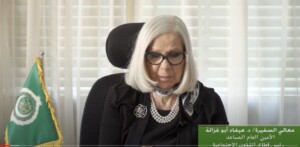
In another recorded speech, Dr. Haifa Abu Ghazaleh, Assistant Secretary-General and Head of the Social Affairs Sector at the League of Arab States, stated that the League is planning to implement initiatives related to Early Childhood, including advocating for decision-makers to effectively plan and formulate a unified Arab strategy for Early Childhood Development.
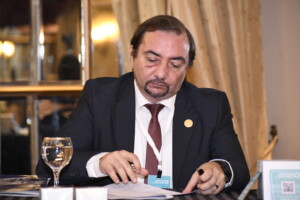
Dr. Rami Iskander, the Director of the Education Department at the Arab League Educational, Cultural and Scientific Organization (ALECSO), discussed issues related to the support and protection of Early Childhood in the Arab World during the digital age. He highlighted ALECSO’s role in coordinating efforts among member-states, exchanging knowledge and expertise, guiding research and studies in the field of Early Childhood Development, and analyzing the application of international best practices in the Arab context.
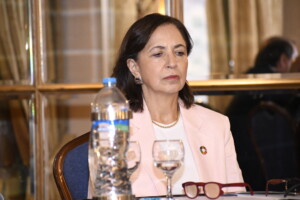
Dr. Maha Al-Adawi, the Director of the Health Protection and Promotion Department at the Eastern Mediterranean Regional Office of the World Health Organization (WHO), mentioned that the organization has collaborated with ANECD, UNICEF, and key partners in recent years to improve development interventions for Early Childhood in humanitarian settings, with a focus on Syria, Palestine, Iraq, and Jordan.
After presenting the strategy, action plan, and intervention areas of the ANECD, the participants were divided into several specialized parallel sessions that addressed ANECD’s strategic research models, such as early childhood in emergencies and crises, the impact of climate change on young children, and the rights of the workforce in the field of early childhood. In addition, the discussions in the specialized sessions revolved around child rights, digital empowerment, and cybersecurity. The forum also featured an exhibition of programs related to the development and care of early childhood from various Arab countries.
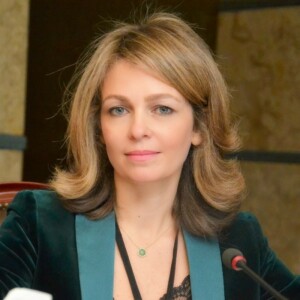
The second day’s sessions started with a recorded intervention by Mayssoun Chehab, head of the Education Program at UNESCO. She highlighted the significance of the Tashkent Declaration, emphasizing support for the Early Childhood Development (ECD) workforce and increased investments, as well as the Sharjah Declaration, which promotes comprehensive child development and well-being. Ms. Chehab stressed the importance of partnerships and coordination among relevant stakeholders as key in creating an ideal environment to achieve ECD objectives.
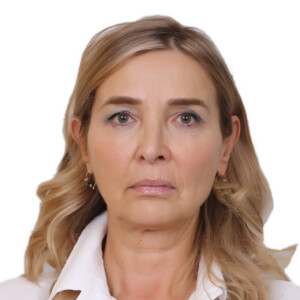
Afterwards, Aferdita Spahiu, an Education Specialist from UNICEF, shed light on the importance of Early Childhood in the Middle East and North Africa region, despite challenges such as conflicts and food insecurity. She emphasized the unique needs of children and the necessity of early care, calling for support in partnerships and joint efforts between governments and organizations to advance Early Childhood Development.
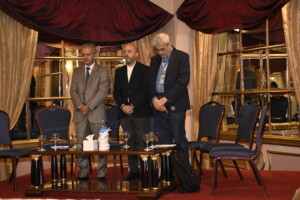
Dr. Mohammad Moqdadi, the Secretary-General of the National Council of Family Affairs (NCFA), reaffirmed Jordan’s commitment to Early Childhood Development since the 1970s. He highlighted the establishment of the NCFA in 2001, the development of a national strategy for early childhood development in 2002, and the subsequent formulation of a national policy in 2004. Dr. Moqdadi also emphasized the value of partnerships and reiterated the NCFA’s commitment to advising other countries in establishing their national networks for Early Childhood Development.
Dr. Aziz Kaychouh, the Secretary-General of the Higher Council for Education, Training, and Scientific Research, discussed the prominent role played by the Council in shaping Morocco’s approach to early childhood development. He explained that the Council has contributed to bridging gaps in areas such as mental health, early childhood research, workforce development, and ongoing monitoring and evaluation.
The forum concluded with recommendations devised by the participants and the sectors they represent, including ministries, government agencies, non-governmental organizations, and academia. These recommendations comprised networking and coordination, establishing common guiding principles for research in the field of Early Childhood, creating a platform for sharing research and data in this area, activating collective work in strategic planning, conducting an environmental and historical context survey, and developing a theoretical framework for change, among other recommendations. A detailed report with these recommendations and more will soon be published by ANECD.
